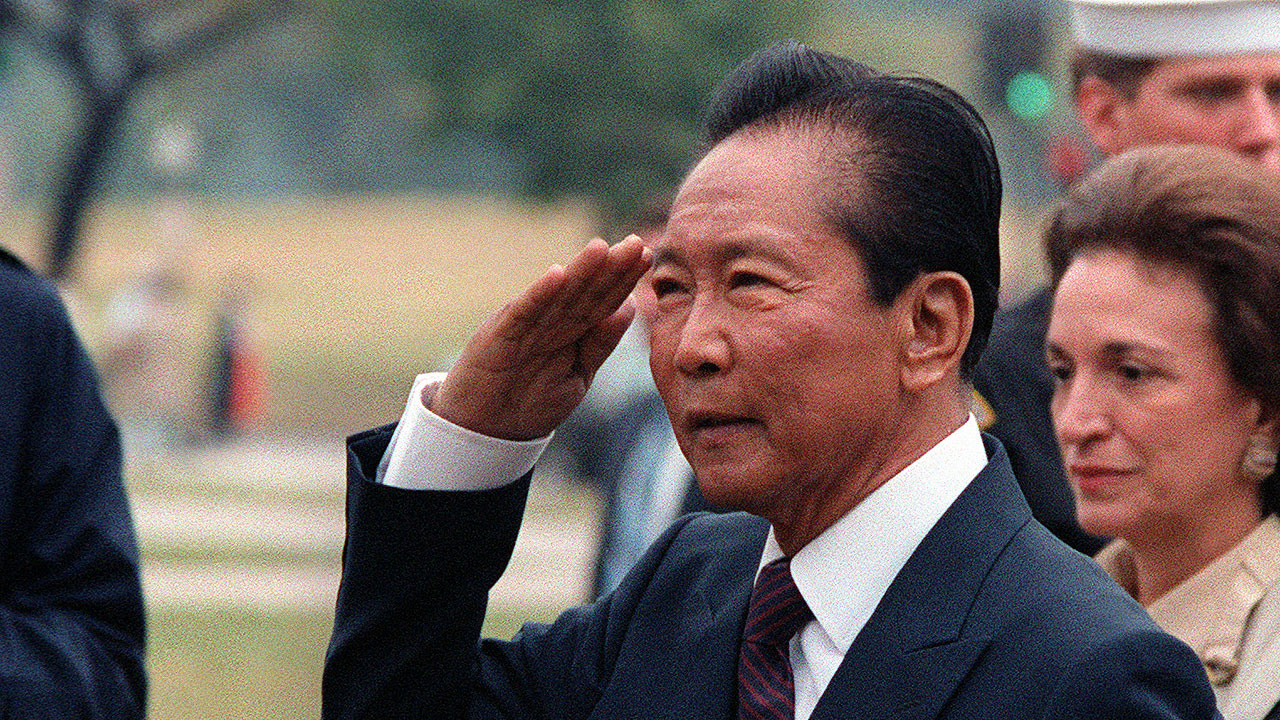Marcos silence on human rights cited on anniversary of father’s martial rule

By Beatriz Marie D. Cruz, Reporter
HUMAN rights defenders on Thursday scored Philippine President Ferdinand R. Marcos, Jr.’s alleged silence on rights violations under his rule, as the country commemorated the 51st anniversary of martial law that his father and namesake decreed.
“President Marcos has not decisively acted on human rights violations under his watch,” Karl Patrick Suyat, co-founder of research group Project Gunita, said in a Facebook Messenger chat.
“He maintains a Marcosian doublespeak wherein he says one thing in front of an audience, like his balderdash about an improving human rights situation under his regime but does its exact opposite when he’s not on the spotlight,” he added.
He said the military’s alleged kidnapping of two environmental activists “herald a worsening human rights crisis under the second Marcos regime — very much similar with what his father’s martial law had conjured.”
Presidential Communications Office chief Cheloy Velicaria-Garafil did not immediately reply to a Viber message seeking comment.
The late dictator Ferdinand E. Marcos, Sr. on Sept. 23, 1972 announced on national television that he had placed the country under martial law, citing an alleged communist threat. Proclamation 1081, which was dated two days earlier, abolished Congress and allowed him to consolidate power by extending his tenure beyond the two presidential terms allowed by the 1935 Constitution.
More than 70,000 people were jailed, about 34,000 were tortured and more than 3,000 people died under martial rule, according to Amnesty International.
“It would appear that President Marcos Jr. refuses to acknowledge the very huge elephant in the room — the avarice-tainted and repression-filled years of his father’s misrule that he and his family continue to deny and refuse to atone for,” Albay Rep. Edcel C. Lagman said in a statement.
At least 342 drug-related killings happened under Mr. Marcos’ first year as president, according to the Dahas project under the University of the Philippines Third World Studies Center.
Mr. Marcos has also rejected an investigation by the International Criminal Court of former President Rodrigo R. Duterte’s deadly drug war that killed thousands.
Human rights group Karapatan said the country is “facing the same forms of repression with the enforcement of the counter-terrorism laws that are essentially martial law instruments.”
‘IGNOMINY OF THE PAST’
“Several political activists and human rights defenders have already been unjustly and arbitrarily labeled as terrorists, criminally charged and their personal and organizations’ assets and properties subjected to civil forfeiture proceedings,” it said in a statement.
The Movement Against Tyranny said intelligence funds of the Office of the President and Office of the Vice President should have been allocated to programs on education, health, housing and agriculture. Their budgets breezed through the House committee on appropriations without questions.
“The dynastic Marcos-Duterte duo presides today over our people’s increasing impoverishment even as they wallow in hundreds of millions of confidential funds,” it said in a statement.
Mr. Marcos and Vice-President Sara Duterte-Carpio were part of the Uniteam duo that won the 2022 elections by a landslide.
Under the late dictator’s rule almost half of the population or at least 27 million Filipinos lived under extreme poverty, according to research think tank IBON Foundation. He was toppled by a popular street uprising in February 1986.
The Campaign Against the Return of the Marcoses and Martial Law (CARMMA) said the return of the Marcos clan to political power seeks to erase their family’s legacy in Philippine history.
“What we are witnessing now with the return of the Marcoses to political power is the comeback of their nefarious and brazen schemes to distort history, to whitewash their family’s crimes against the Filipino people, and to legitimize their family’s bloody legacy of anti-people, undemocratic and tyrannical rule,” it said in a separate statement.
During the House of Representatives’ debates on the 2024 budget on Wednesday, Mr. Lagman complained about the absence of funding for the creation of a Martial Law Museum as mandated by law.
“This memorial museum will constantly remind Filipinos of the atrocities of the Marcos, Sr. martial law regime and the heroism of its victims and survivors,” said Mr. Lagman, whose brother Hermon disappeared during the Marcos regime.
The National Historical Commission of the Philippines also suffered an P85-million budget cut for next year to P250 million.
“We cannot move forward together without looking back,” Mr. Lagman said. “The ignominy of the past will forever haunt the present if we attempt to consign to oblivion the inordinate transgressions and flagrant misrule of martial law.”
Ferdinand Marcos stole as much as $10 billion (P569 billion) from the Filipino people, according to government estimates, earning him a Guinness World Record for the “greatest robbery of a government.”
The Presidential Commission on Good Government, created in 1987 to recover ill-gotten wealth of the family and their cronies, has recovered at least P171 billion.



